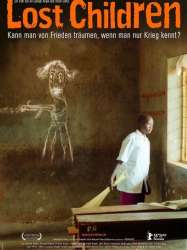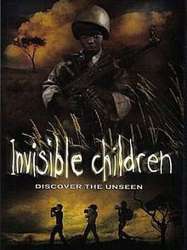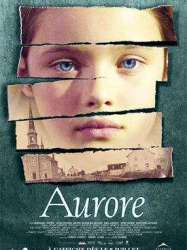Films with theme "Films about child abuse", sorted by revenue

About a Girl (2001)
, 9minutesDirected by Brian Percival
Origin United-kingdom
Genres Drama
Themes Films about children, Films about child abuse
Actors Ashley-Jade
About a Girl opens with a striking shot of a silhouette — against a skyline of clouds above a field — of a girl singing the Britney Spears song "Stronger" and doing the dance routine. It cuts abruptly to a close-up of the girl talking in a strong Mancunian accent to the camera: "If Jesus were alive today — right, he'd probably be a singer." She is walking against a backdrop of Manchester's industrial landscape, talking non-stop, mixing wry statements about stardom and singers with random quotes from her parents and descriptions of her life: her relationship with her dad, her frustrations with her mum, her desire to become a famous singer, the band she has formed with her friends. Things any 13-year-old might talk about. Her monologue is interrupted and intercut with different scenes of her with her family and her dad; her in a perfume department, sitting on a bench singing "Stronger" again, and on the back of a bus with her girlfriends singing "Oops!... I Did It Again" by Britney Spears and doing the routine.

Rainbow Bird and Monster Man (2002)
Genres Documentary
Themes Films about children, Documentary films about law, Documentaire sur une personnalité, Documentary films about child abuse, Films about child abuse
The story begins with Tony recalling himself as a child in the 1960s at the age of four, coming from an aloof family in Trentham, Victoria. Tony's father was an agricultural labourer who suffered from alcoholism. Tony, without an older male role model, originally felt warm attachment to the other main figure in the film, his father's workmate and drinking friend Gordon Kerr. Then on one night Gordon - who was to be looking after the child - raped Tony. Tony and his younger brother continued to be sexually assaulted by Gordon for the following ten years until his parents unexpectedly saw this for themselves and were forced to acknowledge what was happening.

Twist of Faith (2005)
, 1h27Directed by Kirby Dick
Origin USA
Genres Documentary
Themes Films about children, Films about religion, Documentary films about law, Documentaire sur une personnalité, Documentary films about religion, Documentary films about child abuse, Films about child abuse
Actors Jeff Anderson

The Youngest (2005)
, 1h4Origin Philippines
Genres Documentary
Themes Films about children, Prison films, Documentary films about law, Documentaire sur une personnalité, Documentary films about child abuse, Documentary films about law enforcement, Films about child abuse
Ditsi Carolino received the Best Director award for the documentary film Bunso (The Youngest) at the OneWorld 2005 documentary films festival held in Prague, Czech Republic.

Lost Children (2005)
, 1h37Directed by Ali Samadi Ahadi
Genres Documentary
Themes Films set in Africa, Films about children, Documentary films about law, Documentary films about war, Documentary films about historical events, Documentaire sur une personnalité, Documentary films about child abuse, Films about child abuse

Aruba (2006)
, 11minutesOrigin Canada
Genres Drama
Themes Films about children, Films about child abuse
Actors A.J. Saudin, Devon Bostick, Soo Garay
Milan (A.J. Saudin) is an 11-year-old boy who dreams about escaping a violent home life. When his parents fight or take drugs, or when bullies pick on him in school, he finds peace in contemplating a postcard with an idyllic picture of the island of Aruba, and imagines himself in that faraway place as a way to survive.

Invisible Children (2006)
, 55minutesDirected by Jason Russell
Origin USA
Genres Documentary
Themes Films set in Africa, Films about children, Documentary films about law, Documentary films about war, Documentary films about historical events, Documentaire sur une personnalité, Documentary films about politics, Documentary films about child abuse, Political films, Films about child abuse
Actors Jason Russell
In the spring of 2003, Jason Russell, Bobby Bailey, and Laren Poole traveled to Africa to document the War in Darfur. Instead, they changed their focus to the conflict in northern Uganda, Africa's second longest-running conflict after the Eritrean War of Independence. The documentary depicts the abduction of children who are used as child soldiers by Joseph Kony and his Lord's Resistance Army (LRA). This film centers around a group of Ugandan children who walk miles every night to places of refuge in order to avoid abduction by the LRA.

An American Crime (2007)
, 1h38Directed by Tommy O'Haver
Origin USA
Genres Drama, Biography, Horror, Crime
Themes Films about children, Films about child abuse
Actors Ellen Page, Catherine Keener, Hayley McFarland, Ari Graynor, Scout Taylor-Compton, James Franco
An American Crime alternates between the 1966 trial of Gertrude Baniszewski (Catherine Keener), and lengthy flashbacks to the events of the previous year described by the witnesses.

The Elizabeth Smart Story (2003)
, 1h29Directed by Bobby Roth
Origin USA
Genres Drama, Crime
Themes Films about children, Films about child abuse
Actors Dylan Baker, Lindsay Frost, Amber Marshall, Tom Everett, Hannah Lochner, Tyler Kyte
Fourteen year old Elizabeth Smart is part of a large and loving Mormon family. Her father, Ed hires a handyman, a self-styled prophet named Emmanuel, to help him with a remodeling job. Months later, Emmanuel returns and kidnaps Elizabeth one night at knifepoint. Her sister, Mary Katherine, who is in the bed with her, is too terrified to immediately tell her parents. Once she does a massive police investigation begins. The Smarts are angered when the investigation questions whether any family members are involved in Elizabeth’s disappearance. A massive search effort begins and the story causes a media frenzy. After a false news story that the police suspect a family member, Ed takes and passes a polygraph test. Richard Ricci, who worked for the Smarts until he was fired when jewelry went missing, is arrested for a parole violation and the police think suspect his involvement in Elizabeth's disappearance. Emmanuel subsequently tries to kidnap one of Elizabeth's cousins, but is unsuccessful. The Smarts learn Ricci has had an aneurysm and is now brain dead. After this the Mom gives up hope, the story fades into the background and the police stop looking for Elizabeth. At one point, Mary Katherine realizes that it was Emmanuel who took Elizabeth, but the police do not pursue this lead. Ed appears on the TV show America's Most Wanted and tells host John Walsh in confidence about this new information. When Walsh reveals it on Larry King Live, the Smarts publish a sketch of Emmanuel, who is later identified as Brian David Mitchell. After having taken her to San Diego, Mitchell returns to Salt Lake City with his wife and Elizabeth. When the police accidentally come across the three of them and question them, Elizabeth identifies herself, resulting in Mitchell's arrest and Elizabeth's reunion with her family.

Aurore (2005)
, 1h55Directed by Luc Dionne
Origin Canada
Genres Drama, Biography, Action, Melodrama
Themes Films about children, Films about child abuse
Actors Serge Postigo, Marianne Fortier, Rémy Girard, Stéphanie Lapointe, Yves Jacques, Sarah-Jeanne Labrosse
Aurore Gagnon, born in 1909 to Marie-Anne Caron and Telesphore Gagnon, is the second child of the couple. During the first nine years of her life, Aurore enjoys a happy life.

Must Read After My Death (2007)
, 1h14Origin USA
Genres Documentary
Themes Films about children, Documentary films about law, Documentaire sur une personnalité, Documentary films about child abuse, Films about child abuse
When a Hartford couple turns to psychiatry for help with their marriage, things quickly spiral out of control. Couples counseling, individual and group therapy and 24-hour marathon sessions ensue. Their four children suffer and are given their own psychiatrists. Pills are prescribed, people are institutionalized, shock-therapy is administered. This is an intimate story in the family’s own words, from an extraordinary collection of audio recordings and home movies, illuminating a difficult and extraordinary time.

Sybil (2007)
, 3h18Directed by Joseph Sargent
Origin USA
Genres Drama
Themes Films about children, Medical-themed films, Psychologie, Films about psychiatry, Films about child abuse
Actors Tammy Blanchard, Jessica Lange, JoBeth Williams, Ron White, Fab Filippo, Brian Downey
Le film est basé sur le livre Sybil de Flora Rheta Schreiber paru en 1973. Sybil Dorsett est une jeune femme diplômée qui souffre d'étranges absences et demande de l'aide à une psychiatre : le Dr Cornelia Wilbur. On suit la longue psychothérapie de Sybil, au cours de laquelle la thérapeute va mettre en évidence un trouble de la personnalité multiple, en l'occurrence, chez Sybil, ce sont dix-sept personnalités différentes qui prennent le contrôle d'elle-même. Certaines sont psychotiques et veulent la tuer. Ces troubles sont liés à des abus sexuels durant l'enfance. La thérapie va mener à la réintégration progressive de ces personnalités en une seule.

Hakani: A Survivor's Story (2008)
Directed by David L. Cunningham
Origin Bresil
Themes Films about children, Documentary films about law, Documentaire sur une personnalité, Documentary films about child abuse, Films about child abuse

Honour Me (2008)
Origin United-kingdom
Genres Documentary
Themes Films about children, Documentary films about law, Documentaire sur une personnalité, Documentary films about child abuse, Films about child abuse
 , 56minutes
, 56minutesDirected by Robert Koenig
Origin USA
Themes Films about children, Documentary films about law, Documentary films about war, Documentary films about historical events, Documentary films about politics, Documentary films about child abuse, Political films, Films about child abuse
Returned: Child Soldiers of Nepal's Maoist Army tells the personal story of Nepali boys and girls as they attempt to rebuild their lives after fighting in the Nepalese Civil War. Through the voices of former child soldiers, the film examines why these children joined the Maoists and explores the prevention of future recruitment.
 Connection
Connection